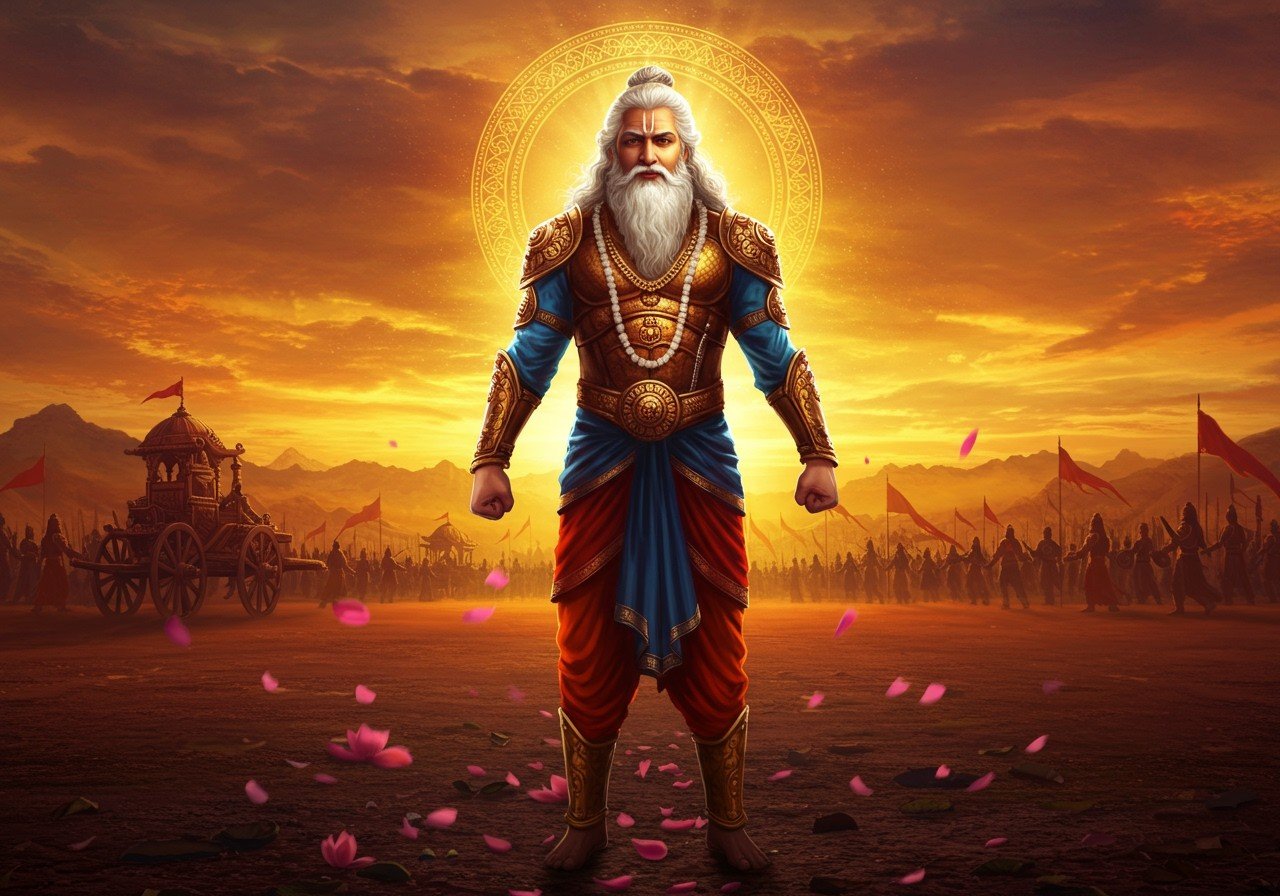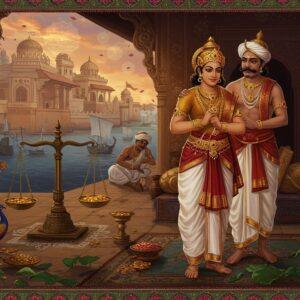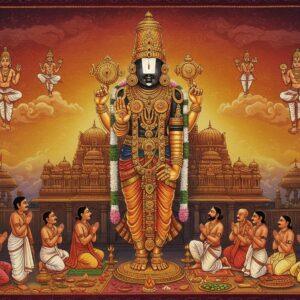
Bhishma Pitamah, also known as Devavrata, stands as a towering figure in the Mahabharata, revered for his unwavering devotion to duty and sacrifice. His life story, deeply interwoven with the epic narrative, offers profound insights into dharma (righteous conduct) and karma (action). This article delves into the life of Bhishma, exploring his remarkable vows, his influence on the Kuru dynasty, and his enduring legacy.
Early Life and Divine Origins
Bhishma’s tale begins with a divine touch. Born as the eighth son of King Shantanu and Goddess Ganga, his birth carried the weight of a curse upon the celestial Vasus, leading to their earthly incarnation. Under the tutelage of his mother and later, the sages Vashishtha and Parashurama, young Devavrata mastered the Vedas, Shastras, and the art of warfare (Astra Vidya). This early education laid the foundation for his future wisdom and prowess.
The Bhishma Pratigya: A Vow of Renunciation
A defining moment in Bhishma’s life arrived with his father’s desire to marry Satyavati. To ensure his father’s happiness and secure the throne for Satyavati’s lineage, Devavrata took the formidable Bhishma Pratigya – a vow of lifelong celibacy. He relinquished his claim to the throne, an act of extraordinary selflessness that earned him the name “Bhishma,” signifying “one who undertakes a terrible vow.” This profound sacrifice cemented his place as a paragon of duty and devotion.
You can explore more about Mahabharata and other epics with our collection of sacred books.
Ichcha Mrityu: The Boon of Choosing Death
As a testament to his extraordinary sacrifice, Bhishma received the boon of Ichcha Mrityu – the power to choose the time of his own death. This divine gift underscored his control over destiny, further elevating his status within the epic narrative. It is a testament to his exceptional character and the divine favor he earned through his selfless actions.
Guardian of Hastinapur
Bhishma dedicated his life to serving Hastinapur and the Kuru dynasty. He acted as a wise counsel, a skilled warrior, and a regent, navigating intricate political landscapes and succession crises. His unwavering loyalty and profound wisdom were instrumental in guiding the kingdom through turbulent times. He was a true pillar of strength and stability for Hastinapur.
Conflict and the Kurukshetra War
Bhishma’s life was not without conflict. His confrontation with his own guru, Parashurama, over Princess Amba, exemplifies his unwavering adherence to dharma, even in the face of personal challenges. Despite his yearning for peace, Bhishma’s duty bound him to fight in the Kurukshetra War, where he led the Kaurava forces for ten days. This internal struggle highlights the complexities of dharma and the difficult choices one must make in times of conflict. Learn more about the epics here.
The Final Battle and Teachings from the Bed of Arrows
On the tenth day of the war, facing Arjuna with Shikhandi as a shield, Bhishma honored his vow not to harm a woman and lowered his weapons. Struck by Arjuna’s arrows, he fell upon a bed of arrows, choosing to remain alive until an auspicious time for his departure. This period became a stage for profound teachings, as Bhishma imparted wisdom on dharma, governance, and the welfare of mankind to Yudhishthira. You can delve deeper into the spiritual meaning and importance with this article.
A Legacy of Dharma and Sacrifice
Bhishma Pitamah’s legacy continues to resonate through generations. He is a symbol of duty, sacrifice, and unwavering adherence to principles. His teachings on dharma remain timeless, offering guidance on ethical conduct and leadership. By sharing the Vishnusahasranama, he highlighted the path towards spiritual liberation. His life invites contemplation on complex ethical dilemmas, including end-of-life decisions. Bhishma’s story stands as a testament to the power of commitment, the importance of selfless service, and the enduring influence of a life lived in accordance with dharma.
Poojn.in offers a wide range of products for various pujas and rituals, including items that can be used for ceremonies honoring Bhishma Pitamah. You can find items such as: Shola malas, red pola bangles, kakkol fruit, and much more. Explore our collection at www.poojn.in to discover authentic and high-quality items for your spiritual needs. For any queries, you can call us at 03369029784 or WhatsApp us at +91-9476142738.


